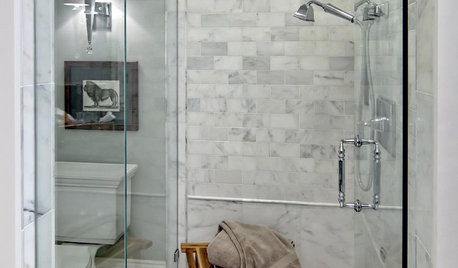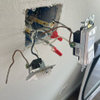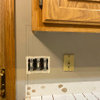Mild electric shock in the shower
paudemge
16 years ago
Featured Answer
Sort by:Oldest
Comments (42)
paudemge
16 years agoRelated Professionals
Chatsworth General Contractors · Duncanville General Contractors · Groveton General Contractors · Leavenworth General Contractors · Plano General Contractors · Rosemead General Contractors · Toledo General Contractors · University Heights General Contractors · Channahon Handyman · Moreno Valley Solar Energy Systems · Pinellas Park Solar Energy Systems · Lenexa Home Automation & Home Media · Surfside Home Automation & Home Media · Winnetka Home Automation & Home Media · Federal Heights Home Automation & Home Mediabus_driver
16 years agopaudemge
16 years agogroundrod
16 years agoDavidR
16 years agobrickeyee
16 years agojoeplumb
16 years agodim4fun
16 years agojakethewonderdog
16 years agopaudemge
16 years agopaudemge
16 years agoDavidR
16 years agonairobi_jones
15 years agokalining
15 years agojoefixit2
15 years agobillhart
15 years agokalining
15 years agospencer_electrician
15 years agotexasredhead
15 years agoRon Natalie
15 years agotexasredhead
15 years agomaryland_irisman
15 years agobillhart
15 years agogblentz
15 years agotexasredhead
15 years agopjb999
15 years agopharkus
15 years agojoefixit2
15 years agogblentz
15 years agocountryboymo
15 years agomaryland_irisman
15 years agomaryland_irisman
15 years agoJaQuay Young
6 years agotoxcrusadr
6 years agomary rea
4 years agoDavidR
4 years agolast modified: 4 years agotoxcrusadr
4 years agokudzu9
4 years agoHU-126788902
2 years agotoxcrusadr
2 years agoHU-477079311
10 months ago
Related Stories

DECORATING GUIDESDesign Risks From Mild to Wild
These interiors aren’t afraid to stand out — in fact, they embrace their distinctive features
Full Story
BATHROOM DESIGNHow to Settle on a Shower Bench
We help a Houzz user ask all the right questions for designing a stylish, practical and safe shower bench
Full Story
BATHROOM DESIGNHow to Design an Accessible Shower
Make aging in place safer and easier with universal design features in the shower and bathroom
Full Story
BATHROOM DESIGNConvert Your Tub Space Into a Shower — Waterproofing and Drainage
Step 4 in swapping your tub for a sleek new shower: Pick your waterproofing materials and drain, and don't forget to test
Full Story
HOUZZ TOURSMy Houzz: An Orange County Ranch Gets Into the Swing of Things
Golf course views and a mild climate feature in this 1960s ranch remodeled in midcentury modern style
Full Story
HOME TECHIs It Curtains for Curtains? Smart Glass Eliminates Window Coverings
Windows can now control light and heat through electricity and high-tech formulations, making blinds and shades optional
Full Story
DIY PROJECTSReinvent It: Salvage Savvy Keeps an Urban-Farmhouse Bath on Budget
See how resourceful shopping and repurposing gave a homeowner the new bathroom she wanted at the right price
Full Story
COLORHow to Add Color if You’re Color Shy
Here’s how to break into the world of color without breaking a sweat
Full Story
FLOORSFloors Warm Up to Radiant Heat
Toasty toes and money saved are just two benefits of radiant heat under your concrete, wood or tile floors
Full StorySponsored
Central Ohio's Trusted Home Remodeler Specializing in Kitchens & Baths
More Discussions










DavidR